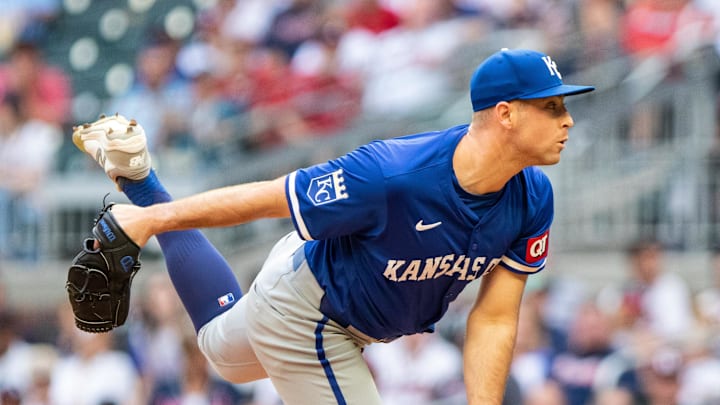While most of baseball has already shifted focus to the offseason, the KC Royals are still on the field. Still, it's important to look ahead at how the team's 2025 roster might take shape in the coming months, especially given the turnover from 2023 to 2024. One key roster aspect fans should be familiar with is the MLB arbitration process.
Arbitration is nothing new — it has existed since the 1973-1974 offseason, according to SABR — but that doesn't mean it's always straightforward. The legal process is filled with a number of twists and turns, all to determine how much a team will pay the eligible players, so in an effort to give fans some insight, economist and baseball consultant Matt Swartz developed an arbitration salary projection system.
MLB Trade Rumors published his model's projected salaries as the MLB playoffs kicked off, with 10 Royals players on the list.
KC Royals set for a raise in arbitration salary projections
Here is how that list breaks down for the Royals, sorted by the player's service time.
Name | Service Time | Proj. Salary |
|---|---|---|
Josh Taylor | 5.121 | $1,100,000 |
Hunter Harvey | 5.047 | $3,900,000 |
Brady Singer | 4.156 | $8,800,000 |
Kris Bubic | 4.135 | $2,800,000 |
Kyle Wright | 4.062 | $1,800,000 |
John Schreiber | 4.027 | $2,000,000 |
Carlos Hernandez | 3.099 | $1,200,000 |
Kyle Isbel | 3.043 | $1,700,000 |
MJ Melendez | 2.153 | $2,500,000 |
Daniel Lynch IV | 2.136 | $1,100,000 |
Starting pitcher Brady Singer leads the list of projected salaries by a wide margin. The right-hander regained some of his 2022 form this season, making a career-high 32 starts with a 3.71 ERA and a 1.275 WHIP over 179 2/3 innings. While Singer isn’t set to become a free agent until after the 2026 season, his continued development and rising value could make him a prime candidate for an extension this offseason.
The Royals have some roster decisions to make this offseason, but the real pressure and scrutiny will have to wait. Kansas City has plenty on the line in the postseason, a milestone they reached thanks to several key acquisitions and personnel choices that paid off.
The process starts when a player and their team cannot agree on a salary for the upcoming season. Each side submits a salary figure, and if they don’t settle by the deadline, a panel of independent arbitrators conducts a hearing. The arbitration process stands out because it uses a "final-offer arbitration" (FOA) system, where the arbitrators must choose either the player's proposed salary or the team's, with no option to compromise. This all-or-nothing structure pushes both sides to settle before the hearing, as both risks losing the entire salary difference.
Kansas City has gone to arbitration hearings in the past, most recently with Singer. The two parties disagreed on his 2023 salary in his first year of arbitration. Singer had reportedly filed for $3.325 million, while the Royals offered $2.95 million. The two sides couldn't bridge that gap, and the subsequent hearing ruled in favor of the team's valuation of the pitcher.
The Royals and their arbitration-eligible players will have until early 2025 to agree to terms, before the eventual February hearings. Kansas City's roster could look very different by that time, but hopefully, there will be some new hardware in the trophy case at 1 Royal Way by then.
